Dr. Tesfamariam Mengistu
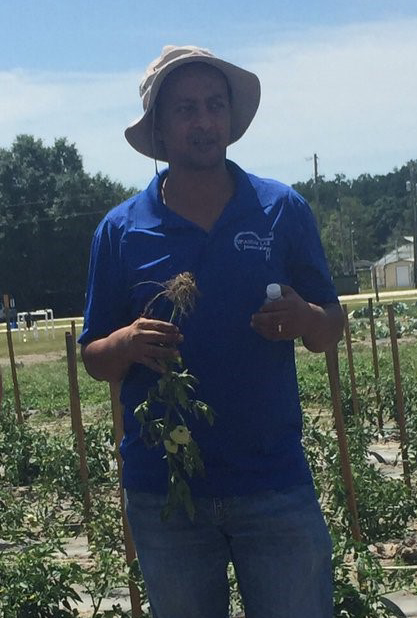 Featured in: DPM Fall 2017 Newsletter
Featured in: DPM Fall 2017 Newsletter
Dr. Mengistu has since moved to another position, you can read about his contributions the DPM program and students in the archived highlight below.
Dr. Tesfamariam Mengistu is an Assistant Professor of Nematology in the UF Entomology and Nematology Department with a 45% extension, 30% teaching, and 25% research appointment. He also serves as the Director of the UF Nematode Diagnostic and Assay Laboratory on campus.
Dr. Mengistu received his B.S. in Plant Sciences from Alemaya University, Ethiopia, his M.S. in Nematology from the University of Ghent, Belgium, and his PhD in Soil Ecosystem Phytopathology and Nematology from the University of Bonn in Germany. Before coming to UF, Dr. Mengistu worked as a Plant Pathologist and Nematologist at the National Plant Protection Research Institute in Ethiopa and as a Post Doc at the University of Illinois working on research focused on nematodes that infect plants grown for bioenergy crops. Continue Reading →
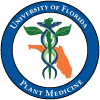
 Featured in:
Featured in: 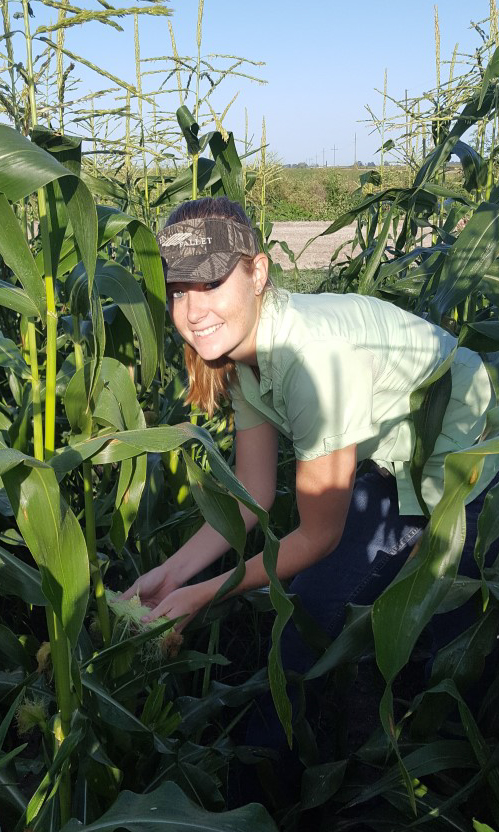 This Spring I had the opportunity to intern with Glades Crop Care in Jupiter, FL with Madeline and Charlie Mellinger. Working with a team of trained scouts and crop consultants, I learned how to identify many insect and disease pests in sweet corn, cabbage, green beans, tomatoes, radishes, and potatoes. Sweet corn was the crop I spent the most time scouting during my internship. This internship has helped me take the technical information that I’ve learned in classes, apply it to field settings, and pinpoint problems that growers were facing. My internship was extremely valuable and has contributed to my knowledge base.
This Spring I had the opportunity to intern with Glades Crop Care in Jupiter, FL with Madeline and Charlie Mellinger. Working with a team of trained scouts and crop consultants, I learned how to identify many insect and disease pests in sweet corn, cabbage, green beans, tomatoes, radishes, and potatoes. Sweet corn was the crop I spent the most time scouting during my internship. This internship has helped me take the technical information that I’ve learned in classes, apply it to field settings, and pinpoint problems that growers were facing. My internship was extremely valuable and has contributed to my knowledge base.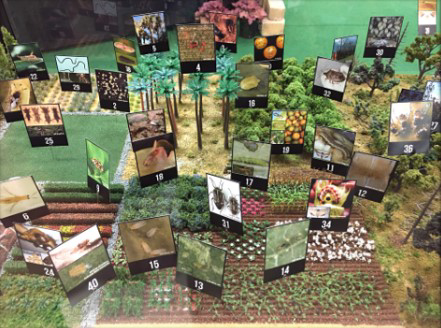 During my internship with the Technical Assistance Department at DPI, I was granted the creative freedom to develop a innovative, visual, and interactive displays that represented the Division at the Florida State Fair held in Tampa, FL in February 2017. Celebrating the theme, DPI: 100 Years of Protecting Florida’s Plant and Apiary Industry, the Division’s presence was going to be larger than previous years and stand as the central feature in the Ag Exhibit Hall at the fairgrounds. As an adoring fan of museums and creative, hands-on education tactics, I dove into the vastness of the internet and utilized personal experiences to draft many ideas for the state fair exhibit. We wanted the DPI exhibit to tell a story and highlight the importance of the Division for audiences of all ages and professional backgrounds.
During my internship with the Technical Assistance Department at DPI, I was granted the creative freedom to develop a innovative, visual, and interactive displays that represented the Division at the Florida State Fair held in Tampa, FL in February 2017. Celebrating the theme, DPI: 100 Years of Protecting Florida’s Plant and Apiary Industry, the Division’s presence was going to be larger than previous years and stand as the central feature in the Ag Exhibit Hall at the fairgrounds. As an adoring fan of museums and creative, hands-on education tactics, I dove into the vastness of the internet and utilized personal experiences to draft many ideas for the state fair exhibit. We wanted the DPI exhibit to tell a story and highlight the importance of the Division for audiences of all ages and professional backgrounds.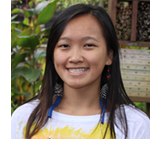 Featured:
Featured: 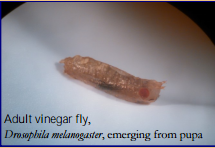 I spent most of my time in the lab conducting behavioral bioassays with vinegar flies and grasshoppers. At the end of my 13 week substantial internship in Indy, I had the opportunity to present my project results during a student poster session with the other summer interns. The experience I had working with DAS was very enriching. I gained exposure and insight into what a career in industry entails as well as valuable lab training and poster presentation skills I did not previously have.
I spent most of my time in the lab conducting behavioral bioassays with vinegar flies and grasshoppers. At the end of my 13 week substantial internship in Indy, I had the opportunity to present my project results during a student poster session with the other summer interns. The experience I had working with DAS was very enriching. I gained exposure and insight into what a career in industry entails as well as valuable lab training and poster presentation skills I did not previously have.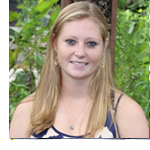 Featured:
Featured: 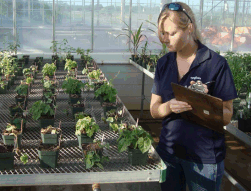 included the following topics: nozzle efficacy tests, herbicide tests for to-be-labeled-chemicals for minor crop use, and dose response tests for rotational crops. Overall, the experience was quite enjoyable. I was able to work with many talented scientists who took any opinions I had about the trials into consideration while pushing me to think outside the box and further develop my problem-solving abilities. This opportunity has allowed me to create memorable connections for the future.
included the following topics: nozzle efficacy tests, herbicide tests for to-be-labeled-chemicals for minor crop use, and dose response tests for rotational crops. Overall, the experience was quite enjoyable. I was able to work with many talented scientists who took any opinions I had about the trials into consideration while pushing me to think outside the box and further develop my problem-solving abilities. This opportunity has allowed me to create memorable connections for the future.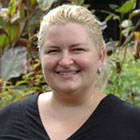 Featured:
Featured: 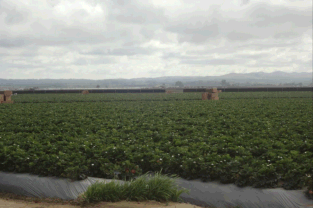 grow and distribute in cooperation with private growers. Driscoll’s nationally recruits students for their internship program, and my multidisciplinary, applied Doctor of Plant Medicine training was a good fit for their objectives. I developed an integrated pest management applied research project with Driscoll’s Entomology Lead Dr. Michael Seagraves to support their ongoing efforts to control spotted wing drosophila. I assisted with weekly monitoring of western flower thrips and two-spotted spider mites in organic strawberry fields in the Salinas Valley,
grow and distribute in cooperation with private growers. Driscoll’s nationally recruits students for their internship program, and my multidisciplinary, applied Doctor of Plant Medicine training was a good fit for their objectives. I developed an integrated pest management applied research project with Driscoll’s Entomology Lead Dr. Michael Seagraves to support their ongoing efforts to control spotted wing drosophila. I assisted with weekly monitoring of western flower thrips and two-spotted spider mites in organic strawberry fields in the Salinas Valley,  and consulted with the breeding and plant pathology units as well. My internship was a challenging but rewarding opportunity to apply the extensive training I’ve received the last four years across the DPM disciplines of entomology and nematology, soil and water science, agronomy, horticulture, and plant pathology. Though I was an entomology intern, my multidisciplinary training facilitated a richer experience for both Driscoll’s and me.
and consulted with the breeding and plant pathology units as well. My internship was a challenging but rewarding opportunity to apply the extensive training I’ve received the last four years across the DPM disciplines of entomology and nematology, soil and water science, agronomy, horticulture, and plant pathology. Though I was an entomology intern, my multidisciplinary training facilitated a richer experience for both Driscoll’s and me.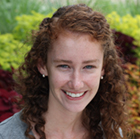
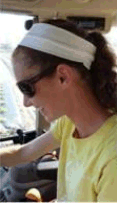 Plant Diagnostic Clinic on campus, I was amazed how much in class/lab experience I was able to apply to situations in the field. This was eye opening to me; I realized how much I had learned these past three years working towards my DPM with each problem that was presented.
Plant Diagnostic Clinic on campus, I was amazed how much in class/lab experience I was able to apply to situations in the field. This was eye opening to me; I realized how much I had learned these past three years working towards my DPM with each problem that was presented.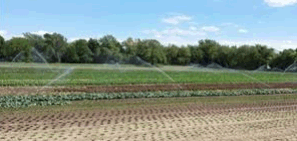 attend a number of meetings with Dr. Bonanno where I was able to speak with to the commissioners of agriculture from New England and others involved in the agricultural industry. Besides making a food safety plan, I also completed a food safety presentation that will be used on the UMass food safety websites. This hands on experience was crucial for me during my last year in the DPM program as it has given me an improved confidence and awareness of my DPM skill set.
attend a number of meetings with Dr. Bonanno where I was able to speak with to the commissioners of agriculture from New England and others involved in the agricultural industry. Besides making a food safety plan, I also completed a food safety presentation that will be used on the UMass food safety websites. This hands on experience was crucial for me during my last year in the DPM program as it has given me an improved confidence and awareness of my DPM skill set.